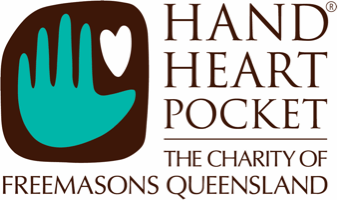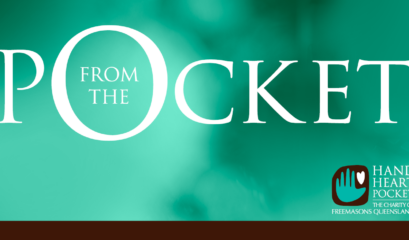
Strategic Partnerships
We partner with charities and organisations who operate in Queensland and Papua New Guinea that tackle social issues to achieve life-changing outcomes for people in need. Our focus is on ensuring Queensland’s most at-risk young people have the outcomes they need to thrive in adult life.
Learn more about our Theory of Change and; partnership approach including, what happens after a partnership ends and how do we know what we do together changes anything?

Designed to Achieve
Life-Changing Outcomes
We are interested in supporting multi-year philanthropic partnerships and impact investments for initiatives that are strongly supported by evidence and whose impact can be measured, to deliver clear outcomes for at-risk young people.
Our partnering approach embraces program delivery, capability building, impact measurement, influencing systemic change and scaling impact.
For more Watch our whiteboard video below or read our 2021-2024 Purpose-led Strategy here.

Hand Heart Pocket
Theory of Change
The Problem We Are Trying to Address
If we:
- Focus our resources and most of our grant funding for at least the next three years to help improve outcomes for youth at risk.
- Build the right partnerships with other charities and philanthropists whose focus is also young people at risk.
- Build the capacity of other charities to help enhance their impact management.
- Support our charity partners to measure their impact and better understand the outcomes being created
- Share what we learn.
Through:
a safe home
Then this will result in:
- Increased confidence.
- Increased hope for the future.
- Increased social interactions.
- Increased community interactions.
- Re-engagement with education.
- Actively seeking work.
- Greater clarity in how impact is created, managed and measured.
- Improved impact measurement to help improve practice.
And eventually will lead to:
- Educational attainment (completion of Year 10, 11 or 12, TAFE, apprenticeship or university).
- Stable employment over time (full-time or part-time).
- Regular volunteering and community contribution.
- A stable support network in place.
- Stable housing.
- Reduced reliance on government services.
- Improved health and wellbeing.
Improved Outcomes for Youth at Risk in QLD Over Time
Want to find out more?
Read our “Background Report and Hand Heart Pocket’s Theory of Change: Improving Outcomes for Youth at Risk in Queensland”

Our Partnership approach
We consider potential partnerships all throughout the year.
We co-design partnerships with organisations when we can see alignment and shared goals.
We don’t accept unsolicited partnership proposals or presentations.
We prefer programs that are community-led or where the program-delivery organisation has been invited by a community
We support programs for First Nations youth when they are delivered by Aboriginal and Torres Strait Islander controlled organisations so that they have cultural authority.
We can take up to 12 months to co-design a partnership and work with partners to agree to an end game so you can continue without our support after the life of our partnership.
What happens after a partnership ends?
The end game is something we consider from the start. When co-designing the partnership, we agree on an end game. An end game is a way forward for your organisation to continue your program without our support, when our partnership comes to an end.
Partnerships are reviewed annually and the end-game can be adjusted as new learnings are taken into account. We follow the endgame theory put forward by the Stanford Social Innovation Review.
How do we know what we do together changes anything?
We work with our strategic partners to measure outcomes for people participating in the programs we back. We use financial acquittals and milestones to measure the success of our partnerships and focus on outcome measurement for learning.

Capability-building support
We also offer capability-building support as we understand that organisations may need help at different stages and for different reasons. This may mean providing assistance to an organisation to get them to the next stage or to position their organisation for future success. Examples of capability-building grants:
Funding to establish a Theory of Change which clearly identifies the problem you are trying to help address, how your organisation plans to help address that problem, and what outcomes it hopes to achieve.
Funding to collate evidence to support your Theory of Change – this can include both quantitative and qualitative evidence that your organisation has collected through its current programs and/or evidence collected by other organisations from similar programs and initiatives.
Funding to establish a proposed framework to measure the outcomes and impact of your program or initiative.
Fund a specialist to develop an organisation’s long-term strategy, business plan and governance program to provide a clear path forward into the future.
Funding to procure additional resources to facilitate growth and expansion within the organisation.
You may seek funding to run an evidenced-based start-up or pilot program.
Does my program or initiative qualify?
We support registered charitable organisations or businesses that operate in either Queensland or Papua New Guinea to tackle social problems. You must be able to demonstrate that your program or initiative is able to assist Hand Heart Pocket to make progress against its ‘Theory of Change’ to improve outcomes for youth at risk or is in support of Hand Heart Pocket’s current strategy.
Organisation’s that operate in Queensland must be:
- Australian charities registered with the Australian Charities and Not-for-Profit
Commission (ACNC); - Have Deductible Gift Recipient status with the ATO;
- Support young people in need
Organisation’s that operate in Papua New Guinea must:
- Have charitable entity status, be registered with the Investment Promotion Authority;
- Provide a copy of the organisation’s formal constitution;
- The constitution must include charitable clauses dealing with funds solely for social purpose, member distributions and a winding-up clause.
Programs or initiatives we are unable to consider
Hand Heart Pocket is unable to consider the following programs or initiatives:
- Projects outside of Queensland or Papua New Guinea;
- Applications submitted on your behalf by an auspice organisation;
- Retrospective or deficit funding;
- Capital grants;
- General fundraising appeals;
- Religious activity;
- Party political activity;
- Direct grants to individuals, including travel expenses, personal study or attendance at conferences;
- Charities directly supporting animals, unless the animals provide assistance for people with a disability (e.g. registered assistance dogs).
News & Publications
Practical help in a financial crisis is at hand, with financial counselling
Secure the future — homes for young Australians
Queensland communities prepare for disaster and act to reduce climate change
Allan serves up a treat and has his hours matched for medical research








